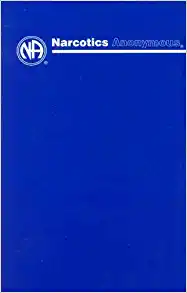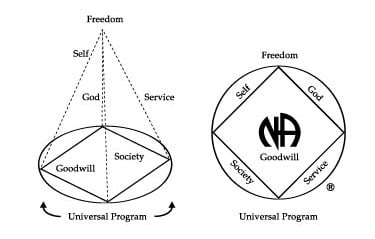Who Is an Addict? Narcotics Anonymous (NA)
Many individuals struggling with drug and alcohol abuse find their way to Narcotics Anonymous in search of an answer to a simple question: who is an addict? Fortunately, the writers of the Narcotics Anonymous (NA) basic text knew that this important question would need to be answered before a solution for recovery could be presented, so they included a reading on the subject as Chapter 1. Below you will find a pdf version of the reading.
Are You Addicted?
The Narcotics Anonymous chapter above provides a comprehensive explanation of the program’s understanding of who’s an addict. To summarize, addicts are people whose use of any mind-altering substance causes problems in any area of life. The writers make clear that addiction is a disease that encompasses far more than just the amount drugs a person uses or the frequency with which they use. They clarify that just because an individual isn’t sharing dirty needles, committing crime, and experiencing homelessness or incarceration does not mean that they are not, in fact, an addict.
Addiction, according to the “Who Is an Addict Pamphlet”, is characterized by an inability to deal with life on life’s terms. Addicts fantasize about finding the perfect combination of mood-changing substances that would make life manageable and enjoyable. The fact, however, is that addicts cannot successfully use any mind or mood altering substances. While others may be able to use drugs and alcohol without consequences (both external and internal), addicts cannot.
Despite increasing isolation from others, except when necessary to get high, addicts are trapped by the illusions of “what if”, “if only”, and “just one more time”. Those who are addicted will justify and rationalize the means that they will go to for another chance to get high. Addicts often experience a selective memory when recalling their experiences around their drug use – they remember only the good times and forget the loneliness, self-pity, and fear that were more often their reality.
The Narcotics Anonymous program also points out that stretches of sobriety are common for addicts, and should not be considered an excluding factor. Many addicts will stop using for periods of time either because of consequences or due to their own temporary realization that their substance abuse is negatively impacting their lives. During this time, they will recover physically and will be freed from the mental and physical tolerance and dependence that accompany frequent drug use. They will, however, always succumb to the lie that they can use again and that this time will be different. Their conclusion is that addiction is a manifestation of a physical allergy. In other words, addicts react differently to drugs than normal people do. This allergy, and not the amount or frequency of drug use, is what defines an addict.
If you asked yourself, “am I an addict” the answer is probably yes if you related to the experiences described above. Addiction is a disease, and like any other disease it can be treated. While programs like NA and AA can be very helpful for maintaining sobriety, many require some professional help to get over the hump of initially getting clean. Often, a medical detox is necessary to overcome the physical components of withdrawal before an individual can commit themselves with a clear mind to a program of recovery. If you or someone you love are interested in getting clean, All In Solutions is here to help however we can. Reach out any time 24/7 to speak with experienced addiction professionals who can answer any questions and provide resources for recovery.

Your Questions, Answered
All In Solutions is committed to helping those struggling with addiction. If you need help, have questions, or just want some support, don’t hesitate to reach out. You will be connected to a recovery expert who understands what you are going through and can help.
People Also Ask
The Basic Text in Narcotics Anonymous is the book on which the program of recovery is based. The first version of NA’s Basic Text was published in 1983, and there have been several updated versions published since then.

In the context of addiction recovery, NA stands for Narcotics Anonymous. NA is a nonprofit Fellowship or society of men and women for whom drugs had become a major problem. We are recovering addicts who meet regularly to help each other stay clean. This is a program of complete abstinence from all drugs. There is only one requirement for membership, the desire to stop using. We suggest that you keep an open mind and give yourself a break. Our program is a set of principles written so simply that we can follow them in our daily lives. The most important thing about them is that they work.
The defining feature of addiction, as described in Narcotics Anonymous, is a physical allergy to drugs. This allergy is described in greater detail above.
Only the individual can determine whether he or she is an addict. The who is an addict pamphlet above can help you evaluate your situation.
The outer circle of the symbol representes that the program is universal and welcoming to all. The square base of the pyramid represents good will, the foundation for the fellowship and membership in broader society. The four sides of the pyramid that rise from the base represent self, society, service, and God. The pinnacle of these points is freedom.

Who Is an Addict? Narcotics Anonymous (NA)-All In Solutions-All In Solutions - A Solutions Based Behavioral Healthcare Group
from All In Solutions https://ift.tt/8swpJhO
via IFTTT

No comments:
Post a Comment